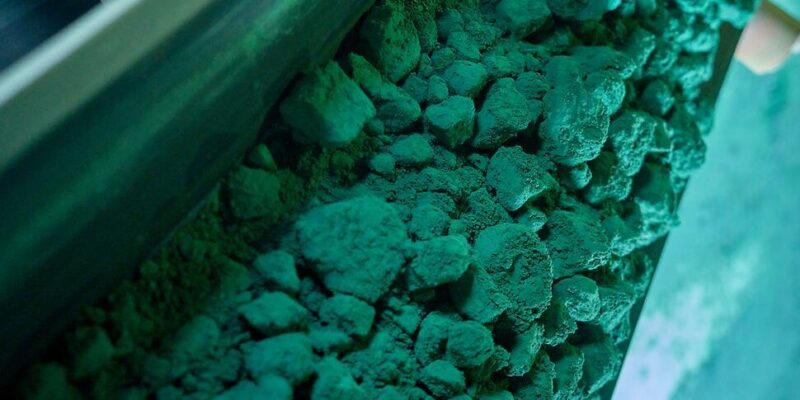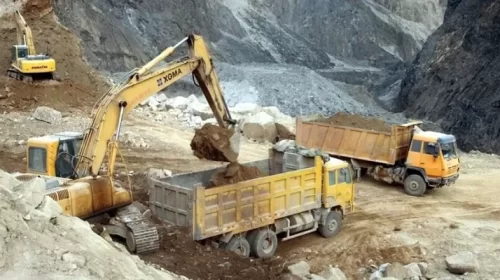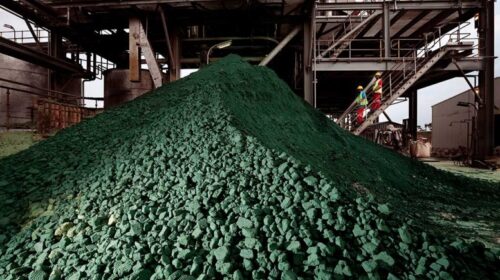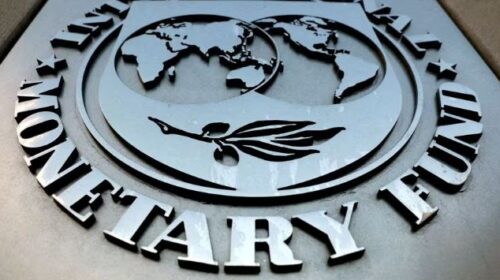US Official Accuses China’s CMOC of Predatory Pricing in Cobalt Market
China’s CMOC Group Ltd. is being accused by a senior US official of employing “predatory” tactics to suppress cobalt prices by flooding the market with the metal sourced from the Democratic Republic of Congo mines.
“What we’re seeing now, I feel, is a variation of predatory pricing,” said Jose Fernandez, Under Secretary for Economic Growth, Energy, and the Environment, during a Cobalt Institute conference in New York.
His remarks highlight the US’s efforts to reduce China’s dominance in critical metals essential for the energy transition from fossil fuels.
Cobalt, vital for lithium-ion batteries and used in aerospace and defense industries, is currently trading at its lowest price since 2019, which hinders Western companies’ efforts to develop mining and refining infrastructure to compete with China.
“In the case of cobalt, there’s a company called CMOC which is driving this oversupply and that’s keeping prices down,” Fernandez told Bloomberg in a separate interview.
Fernandez oversees the Minerals Security Partnership, a collaboration of 14 countries and the European Union aimed at increasing investment in responsible critical mineral supply chains globally.
“There are consequences when you have oversupply,” Fernandez added. “It’s a challenge to our clean energy goals, which are going to require exponentially more cobalt going forward.”
CMOC did not directly respond to Fernandez’s comments but stated that it “strives to promote the healthy development of the cobalt industry and build a competitive and sustainable cobalt supply chain.”
According to a report released by the Cobalt Institute and Benchmark Mineral Intelligence, world cobalt production reached about 230,000 tons last year, with three-quarters originating from Congo.
Chinese companies processed nearly 80% of this metal. The report also noted that a global cobalt surplus increased by about 14,200 tons last year.
Indonesia is also ramping up cobalt production, boosting output by 86% last year. The country expects to double its production in the next two to three years as it expands nickel mining, according to Septian Hario Seto, a deputy at Indonesia’s Coordinating Ministry for Maritime Affairs and Investment.
“What we are doing right now is the expansion of the nickel, and, you know, we get the benefit because the nickel has cobalt in it,” Seto said at the conference. “This is unavoidable.”
CMOC announced in March that its Tenke and Kisanfu projects in Congo are expected to produce over 60,000 tons of cobalt this year.
First-quarter production alone exceeded 25,000 tons, indicating potential for even higher output. Cobalt, often mined alongside copper and nickel, is influenced by demand for these metals. Both CMOC mines in Congo are significant copper producers, with copper prices currently at record highs.
CMOC’s second-largest shareholder is Chinese battery giant Contemporary Amperex Technology Co. Ltd. (CATL), which also holds a direct equity stake in the Kisanfu project.
Low cobalt prices are adversely affecting upstream producers and recyclers. Australian miner Jervois Global Ltd. cut jobs in March due to falling prices, which it attributed to Chinese oversupply. The company also mothballed a project in Idaho last year, which would have been the first new US cobalt mine in decades.
According to the Cobalt Institute report, cobalt prices are anticipated to rise before the end of the decade as demand for the mineral surges alongside the growth of electric vehicles. Even Congo is considering a quota on cobalt exports to boost prices.
“You know that at some point, prices will stabilize,” Fernandez said. “And so what we’d like to see is find ways to help Western companies stay in the game.”
![]()





